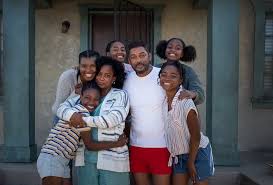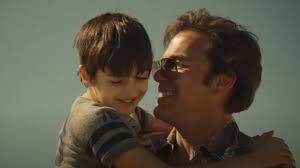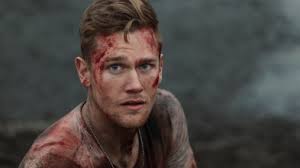Can’t believe that it is over two years since I watched the first series and this popular series is back. I had my reservations about series one and episode one of the new dose pretty much confirmed my fears.
Basically, we begin with a character Fezco, who was brought up by a drug dealing mafia boss of a grandmother (fearsome performance by Kathrin Narducci), moves on to a sordid drug deal involving Rue, Cassie and other members of the task and ends up at a New Year’s party where almost everyone is high on some substance or other.
At this party we have the usual soulless sex and a particularly nasty piece of violence. Talk about the dark side. Some full frontals seem to be the latest addition to push the ratings up. Which I guess answers the question “What’s the point?”
The characters all look like they’ve aged about ten years since the last series which technically is a follow on chronologically from series one – weeks or at most months after the previous batch of episodes. So, I ask again, what is America watching this for and what are they identifying with?
Well, the increase in genital shots, the frequent bouts of madness, a society that is deeply, deeply unhappy and taking all sorts of substances while some shadowy characters watch on rather disaffectedly is a start. Then there are the fights and violence, the drunken driving ….a society in the process of suicide.
What I have liked about series 2 is the backstory to Nate’s dad Cal, whose coming out in episode 4 is memorable and moving despite his being such an unpleasant person. We also have the use of music and the technical prowess, the visual references which are often like the music just placed as a commentary but add depth if you can pick them out.
And there’s no denying the series has a certain style. Shame about the content.
Zendaya is the star of the show as drug addict Rue Bennett. Now, addicts are a gift to actors and have led to some great performances in the history of film and surely Rue’s sad story will stand among Zendaya’s best characterisations. She manages to convince without overdoing and to navigate any absurdities of script effectively. Her melt down in episode 5 is compelling viewing.
Lexi was given a boost at the end with two episodes focusing on the play she wrote about her life and the people around her, namely most of the cast. An interesting ploy to do a play within a film and it had its moments especially in episode 8 as Cassie and Maddy go at it on stage but at other times it seemed unfocused and dark.
The writers justify the play as Lexi’s way of dealing with her shit but she is probably the most together person around and I’m not sure that she would really prepare something so dark and elaborate.
It is also notable how virtually all the adults are absent or failures and the repeated sense is that the younger generations have to figure out the big bad world alone without any protection or guidance. I’m not sure that life is quite like this and thus so terrifying but for some reasons this is the angle the directors and producers wanted.
So, lots of interesting ideas, rather exhausting to binge watch so let each episode decant, some very good technical work and some scenes that are either too violent to watch or just don’t work. A sort of compelling unevenness that I can forgive to a degree. Nonetheless I wanted something less bleak and this was darker than a Scandinavian crime series. And the original idea was Israeli. Some kudos to Sam Levinson for bringing this to the screen here and to the actors who generally do well in their unlikeableness.
Zendaya, yes, is a star and a very nuanced and complete actress already. Hope the next series is a long way off.
3 stars plus


























































































